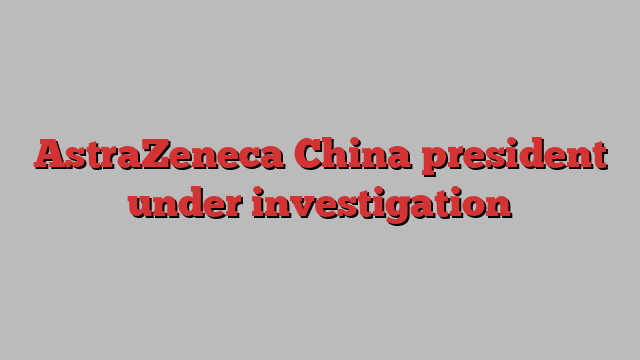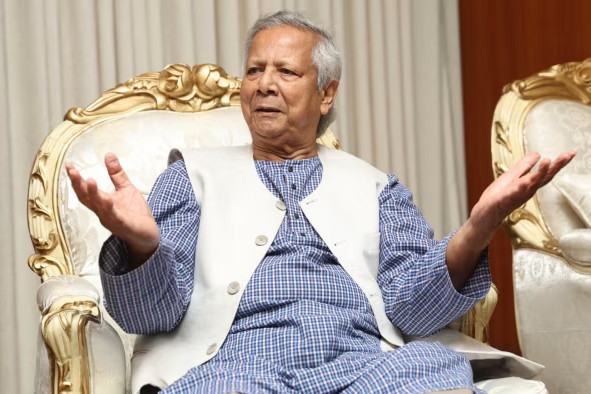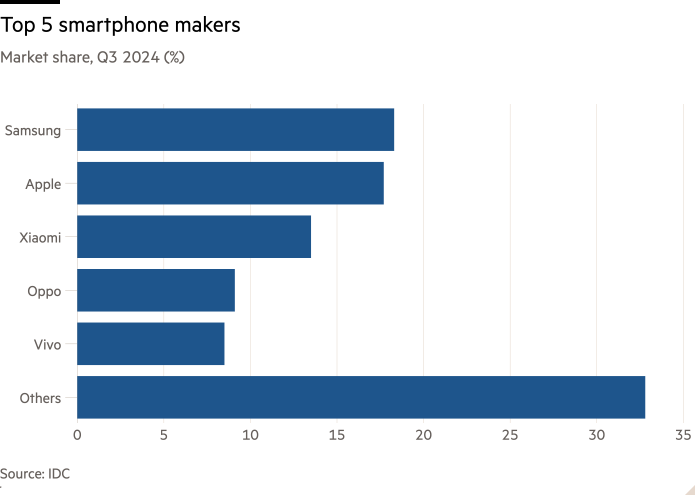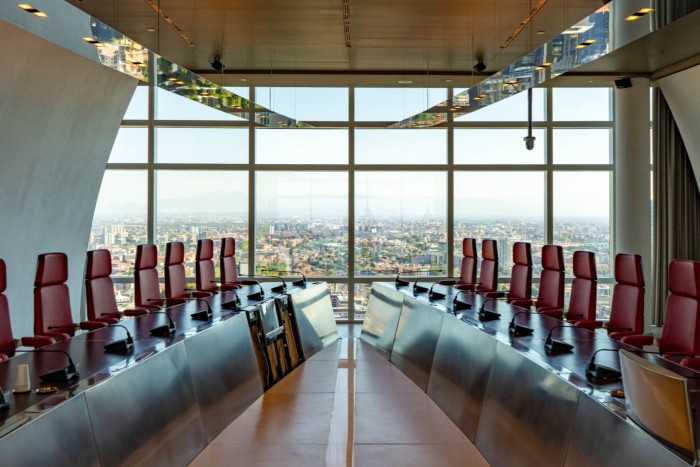
This article is an on-site version of our FirstFT newsletter. Subscribers can sign up to our Asia, Europe/Africa or Americas edition to receive the newsletter every weekday. Explore all of our newsletters here
In today’s newsletter:
-
Beijing probes AstraZeneca’s China boss
-
BYD’s quarterly sales beat Tesla for the first time
-
An interview with Bangladesh’s interim leader
Good morning. AstraZeneca’s China boss, one of the country’s most high-profile pharmaceutical executives, is under investigation by Beijing authorities.
The British drugmaker said yesterday that its China president Leon Wang was “co-operating with an ongoing investigation”. The statement did not clarify the nature of the probe.
The pharmaceutical chief has been crucial to AstraZeneca’s fortunes in China, where it generated $5.9bn in revenues last year, making it the largest overseas drugmaker by sales in the country.
Yesterday’s statement comes after police in Shenzhen detained a handful of AstraZeneca employees last month over the possible infringement of data privacy laws and importing unlicensed medications. It is unclear if Wang’s investigation is related to those arrests.
Beijing has intensified an anti-corruption crackdown on pharmaceutical companies over the past year, even as the sector has been a bright spot in the country’s bid to attract foreign capital.
Eleanor Olcott, our technology correspondent in Beijing, has more details.
Here’s what else I’m keeping tabs on today:
-
Economic data: Hong Kong and Taiwan report advance third-quarter GDP. China’s official October manufacturing and non-manufacturing PMIs are due.
-
Japan monetary policy: The Bank of Japan announces its interest rate decision — investors are betting the central bank will hold rates steady.
-
Results: Samsung Electronics, Fujitsu, Panasonic, Apple and Shell report.
-
Holiday: Financial markets are closed in Singapore, Sri Lanka and Malaysia for Deepavali, also called Diwali, the Hindu festival of lights.
Five more top stories
1. China’s biggest electric vehicle maker BYD has posted higher quarterly revenues than US rival Tesla for the first time. The Warren Buffett-backed carmaker sold a record 1.1mn cars in the three-month period, but a bruising price war in the Chinese market dragged on its profitability.
2. The EU is preparing to launch an investigation into Temu, the Chinese online shopping business, amid concerns that the ecommerce platform is failing to crack down on sales of illegal products. A recent survey that tested toys sold on Temu and other online platforms found that 80 per cent of the items were toxic or posed health hazards for children.
-
EU-China relations: EU tariffs of up to 45 per cent on Chinese electric vehicles came into force yesterday, sharply escalating the trade war between the 27-member bloc and Beijing over allegations of unfair industrial subsidies.
3. A Canadian official has accused India’s powerful home affairs minister Amit Shah of overseeing violence and threats towards Sikh separatist activists in the North American nation. David Morrison, Canada’s deputy foreign minister, told a parliamentary committee on Tuesday that he had confirmed Shah’s identity and alleged involvement to The Washington Post. It is the most direct claim against a close ally of Prime Minister Narendra Modi.
4. The US economy grew at an annualised rate of 2.8 per cent in the third quarter. The data is the latest sign that American consumers remain resilient and comes just days before they vote to elect the country’s new president.
5. Australia will invest up to A$18bn (US$12bn) in missile manufacturing, including making advanced guided missile systems in the country for the first time. The investment is part of an overhaul of Canberra’s defence strategy in response to China’s military build-up.
Interview: Muhammad Yunus

Speaking to the FT, Bangladesh’s interim leader Muhammad Yunus accused ousted authoritarian leader Sheikh Hasina’s Awami League of exhibiting “all the characteristics of fascism”, saying the party has “no place” for now in the country’s politics. Yunus’s comments make clear the 84-year-old Nobel Peace Prize laureate favours taking a hard line on Bangladesh’s oldest and biggest political party after Sheikh Hasina was toppled by a student-led revolt in August.
We’re also reading . . .
-
The FT View: Japan’s political limbo comes at a time when its economic, demographic and security challenges have never been greater, the editorial board writes.
-
Apple Card: The tech giant’s credit card with Goldman Sachs is a cautionary tale for those seeking to reinvent retail finance, writes Brooke Masters.
-
Giant African rats: A furry investigator has boosted the ranks of those sniffing out contraband in the lucrative illegal wildlife trade.
Chart of the day
Samsung Electronics is struggling to hold on to its crown as the world’s top-selling smartphone maker. The Korean tech giant was the only one of the top five global smartphone makers to experience falling shipments in the third quarter of this year, losing market share to longtime US rival Apple and to Chinese contenders offering slick new foldable devices.

Take a break from the news
Age matters when it comes to boards, writes Anjli Raval. Just 5 per cent of directors within S&P 500 companies are under the age of 50, but companies should not be afraid to take a chance on youth, argues Raval.
